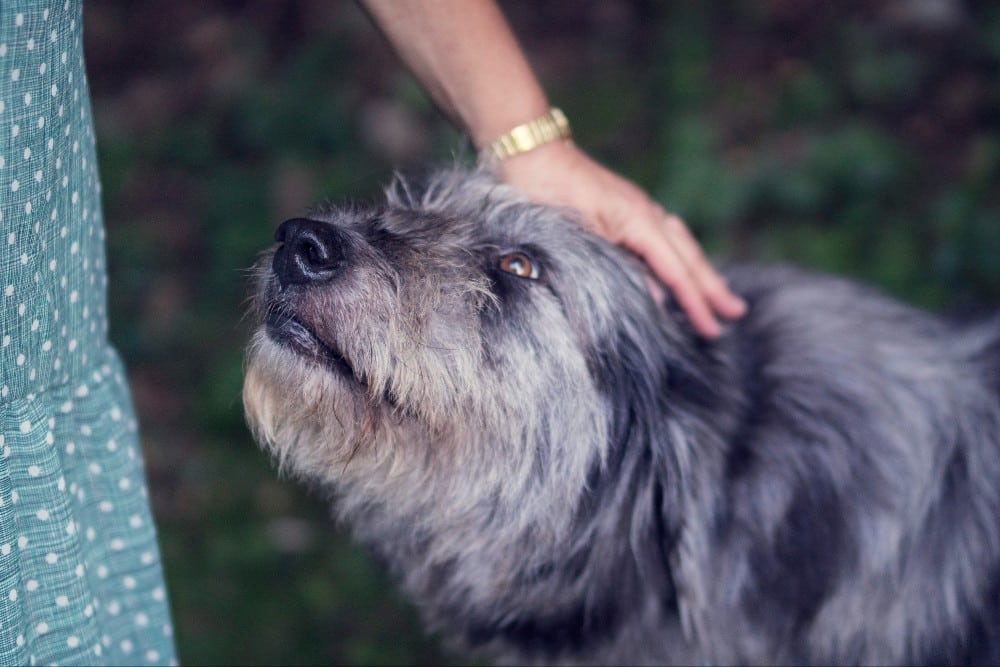With COVID-19 continuing to be a major health crisis in our country, it’s important for dog parents to plan for unforeseen circumstances. What would happen to your pets if you became ill and had to be hospitalized — or worse?
We’re not trying to be alarmist here, and it’s certainly not a subject that anyone wants to dwell on, but having an emergency plan in place is part of responsible pet ownership. Developing this plan and knowing that your darling dog will be taken care of, even if you are incapacitated and unable to do so yourself, will bring you peace of mind.
Related: Could Dogs Sniff Out the Coronavirus?
Here are a few ways to ensure your dog is safe if you can’t be around.
Give Your Dog a ‘Godparent’
Does your dog have a friend or family member who loves your pooch almost as much as you do, and who will take her in without hesitation should the need arise?
Don’t simply assume that your BFF will swoop in to save the day, dog-wise. No matter how much love and affection another person lavishes on your dog, they may not be in a position to care for an animal; maybe they live in a no-pets-allowed apartment complex, perhaps their partner is allergic or possibly they don’t have the financial means.
Find someone you can trust with your dog if something were to happen. Establish specific steps that would be expected of them, and make certain they understand the responsibility. While serious accidents, illnesses and death can be difficult to discuss, do it for your dog and her future welfare.
Once you have a commitment from the emergency caretaker, give them a key to your place and show them where your dog’s supplies are. Take them on a tour of your home if they aren’t already familiar with it, pointing out places where your dog likes to sleep and hang out — and hide, if that’s an issue.
Related: Dog Delights Medical Staff With Care Package Deliveries
Arrange for Boarding as a Backup
If you can’t get a firm commitment from anyone, look into a kennel or boarding facility. It’s not ideal, but if your dog must go somewhere for a short time or on a temporary basis, this beats the alternative of a shelter. And it makes for a good backup in case the friend or loved one you’ve lined up is unavailable for any reason.
Again, be proactive and thorough. Visit the facility, speak to them about your wishes and make it a point to bring your pup in too. That way, the place won’t be completely unfamiliar if they do end up staying there.
Make sure the kennel has a copy of your dog’s medical history and any other paperwork, and leave your credit card information, so there are no snags that might make an unfortunate situation worse.
Pack a Go Bag
Your next step is to gather up some essentials into an emergency kit. This should include:
- Your dog’s crate or carrier and a bed
- A one- to two-week supply of food and treats
- A leash and a collar with ID tags
- Toys, blankets, and shoes or clothing if your dog wears them
- Any medications your dog takes
- A folder containing the names and contact info for your pet godparent and a backup, if you have one
- Contact information for the kennel and your veterinarian
- Vaccination and other medical records
- A brief write-up of care instructions, including any behavior that would behoove a caretaker to know — for example, if your dog tends to bolt or is aggressive toward other breeds.
- Microchip information (make sure it is up to date)
Also, if you don’t already have one, purchase or put together a simple pet first-aid kit to handle any emergencies. (It’s wise to keep one of these on hand anyway.)
You Owe It to Your Dog — And to Yourself
Your dog might mean the world to you — but you are your dog’s entire world. Therefore, developing and executing an emergency plan is essential. It’s a given that you would do everything in your power to come home to your canine companion, safe and sound, every day, but there’s no telling what fate may have in store for you.
Not only will your preparedness ensure that your dog gets the best possible care in the event of an unforeseen crisis, but it also means that you will have one less thing to worry about, regardless of where you are and how you’re faring.
Related: Coronavirus: How to Safely Go On a Walk With Your Dog


















